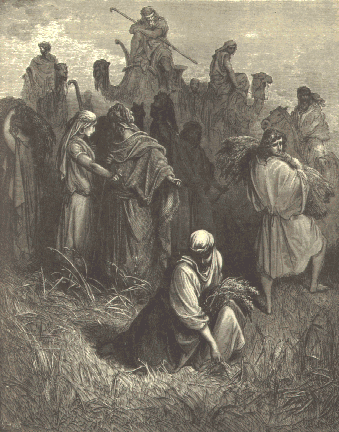As we approach Easter, our hearts and minds focus on the sacrifice of Christ on the cross. There is no event in all of history that changed life as we know it as much as the death and resurrection of Christ. Suddenly, God’s people were not just the Jews. The early church struggled to find out what being in this new family of God meant, both for the Jews and the Gentiles. We know Christ’s death and resurrection brought salvation, but it also brought unity and peace. Let’s join Paul in the book of Ephesians as he explained it to the early church.
Paul starts out in Eph. 2:11-12 by reminding the Gentiles that they had been separated from Christ. They were uncircumcised, alienated, and strangers. Verse 13 says by the blood of Christ, they were brought near to Him. Christ broke down the division between the Jews and Gentiles. Galatians 3:26 & 28 make the same point, “…for in Christ Jesus you are all sons of God, through faith. There is neither Jew nor Greek, there is neither slave nor free, there is no male and female, for you are all one in Christ Jesus.” Before Christ death, there is no way you and I could inherit eternal life. In the tradition of the Old Testament, it was the oldest son who got the biggest inheritance. The rightful heir was a free Jewish male. But through Christ, we are one. I take on Christ’s identity and become neither Jew nor Greek, slave nor free, male nor female. But you can imagine how the believers who had been “free Jewish males” would react to this sudden family growth! And you could imagine how those who had been uncircumcised alienated strangers would struggle to assimilate into this traditional, holy family.
That is why Paul wrote that Jesus had broken down the dividing wall of hostility, abolishing the law of commandments and had created “in himself, one new man in place of the two, so making peace, and might reconcile us both to God in one body through the cross, thereby killing the hostility” (v. 14-16). Paul goes on to write, “So then you are no longer strangers and aliens, but you are fellow citizens with the saints and members of the household of God” (2:19). One new man, fellow citizens, and members of the household! Praise God for the love and grace He extends to all people!
Once the early church knew they were supposed to be unified, they had to experience peace together. Paul was really an ambassador of this peace. He, of all people, would have been the first to exclude the new family member. He was a “Hebrew of Hebrews” (see Philippians 3:4-7). Paul wrote, “I am the very least of all the saints, yet this grace was given, to preach to the Gentiles the unsearchable riches of Christ, and to bring to light for everyone what is the plan of the mystery hidden for ages in God, who created all things” (Eph. 3:8-9). Paul preached this peace, and set an example with his life for all those in the family of God to follow.
So how does the unity and peace Christ brings affect us today? Here are a few practical ways:
- Be sensitive to visitors to your church, especially those who don’t feel like “part of the family.” Give grace and give up your seat (if necessary).
- Be aware of the struggle new believers (or new church members) might have in the activities and ministries of your church. One thing I like to do when someone new is coming over for a Bible study or fellowship for the first time is to give that person a job. For example, I’ll call her and say, “I’m so excited you are coming over for our book club! Do you mind coming early to help me get the snacks ready?” That way the newcomer isn’t walking into a room full of ladies she doesn’t know, and I can introduce her to each person as they come in.
- Be mindful of your life before you met Christ. You were “by nature, a child of wrath…. but God…” Remember salvation is a gift of God, and you didn’t do anything to deserve or earn it. Preach the gospel to yourself, often.
Praise God for the unifying work of Christ on the cross. Like Paul, look for opportunities to set an example of peace in your spiritual family.






